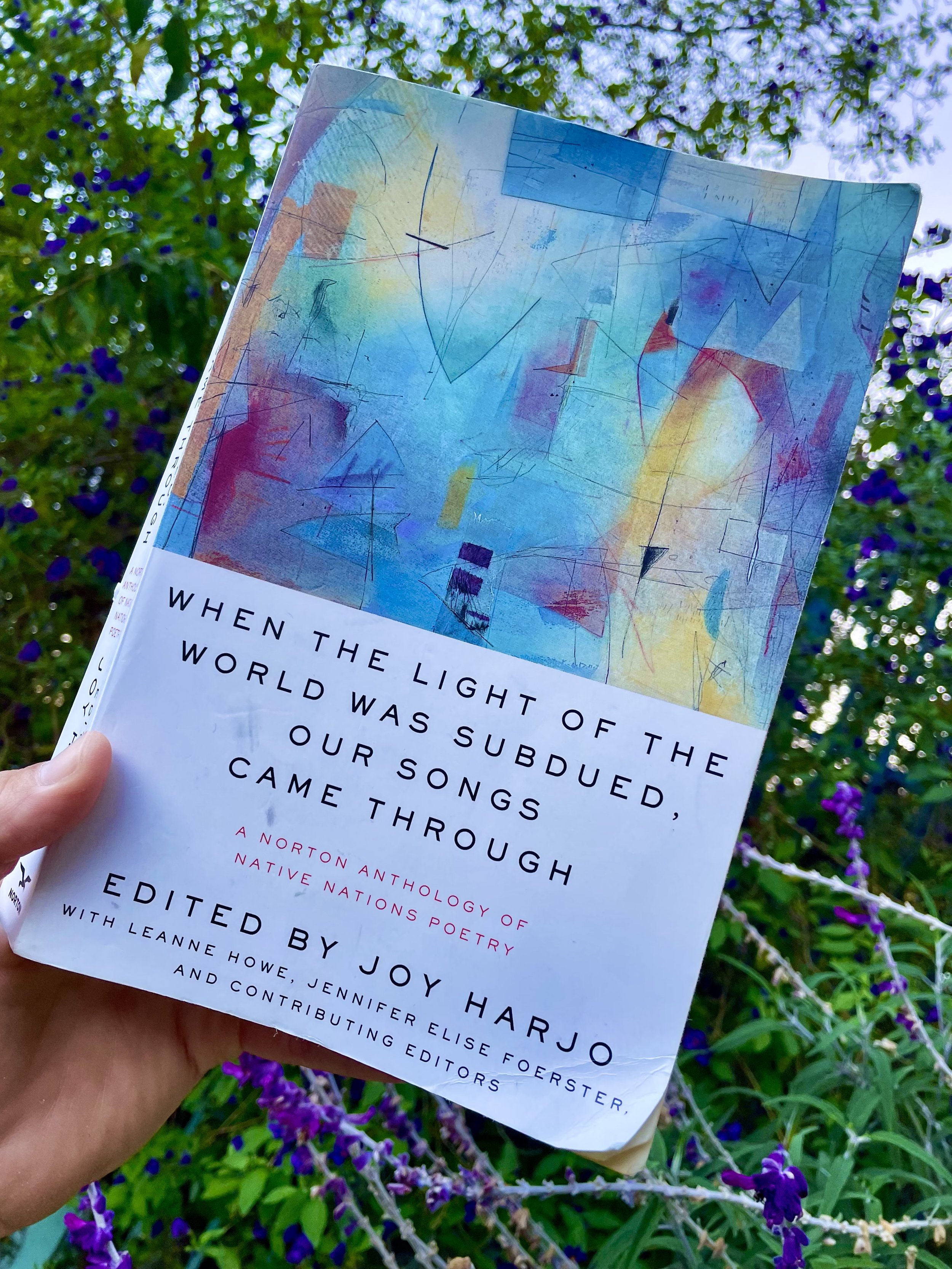"When the Light of the World Was Subdued, Our Songs Came Through" edited by Joy Harjo

“We are literally the land, a planet.... We are creators of this place with each other. We mark our existence with our creations," Joy Harjo tells us, as prone to bar-setting prose as ever in her introduction to When the Light of the World was Subdued, Our Songs Came Through.
Our Songs journeys towards, through, and flourishes in many different territories:
As a collection of poetry, this is an essentials-level gathering.
As historical witness, a must.
To showcase artistic prowess, the width and depth of genres offered here, from traditional songs to avant-garde exploration, run a spectrum of time and space I can only call vast.
To literally top it all off, this greatness arrives under a serious contender for the best and most fitting title I’ve come across in any genre.
Building off this ethos of creativity as transfiguration, Harjo goes on to say that "it is poetry we turn to when we travel those places of transformation,” setting the reader’s pathway ahead with the loss and reshaping, pain and resilience, adaptation and memory sampled through voices going back to the 1600s up to contemporary artists, each singing stories of lives lived in stolen lands stretching from the Pacific Islands to the southeastern-most points of the North American continent.
Scopes of this level are naturally going to be limited by space, and Harjo and her team do well to organize Our Songs in loose assemblies covering islands and plains, directions and eras that speak to themselves on their own terms, outside of the modern labels assigned to these occupied lands.
The editors also do well to encourage readers to check out similar anthologies like The Remembered Earth: An Anthology of Contemporary Native American Literature, That’s What She Said, Contemporary Poetry and Fiction by Native American Women, and Sing: Poetry from the Indigenous Americas, among many more, to cover more ground than these covers can hold.
My own reading gifted me with a diverse roster of a few known-and-loved favorite poets, including haymakers by heroes like “Sonnet for My Wrist” by Tacey Atsitty and “It Was the Animals” by Natalie Diaz, along with a wonderfully hefty quota of introductions to new voices, many of which have been added to my must-read-everything-they’ve-published list.
The pieces by Tanaya Winder and Duane Niatum I read in my video are two among many new encounters I came across in the book, which included but are hardly limited to Adrian C. Louis (“Skinology” sets a high bar in world-building, character, and linguistic mastery, for any genre, taken in 10 stanzas), Gloria Bird, Jake Skeets, and Linda Noel, among many others.
Pulling back in the way of scope, I find it important to keep in mind that, as generous a sampling as Our Songs offers, the total volume of indigenous poetry available has to be a sliver of the creative works produced and lost to the genocide and colonization that has and continues to shape the tragic situation our native populations face today, as I write this in August 2024.
The significance of these poems and poets rises further with this reality, giving us poems as hard histories, as needful markers for a culture that, at best, learns truth too slowly, or worse and more commonly, ignores willfully.
Returning to Harjo’s notes on transformation, to connect with the perspectives and beauty of this collection is to, in turn, be transformed by the honesty and staying power of these poems, and expand one’s view of the world through absorbing the visions and experiences of the voices behind them.
Nothing less is at hand in Our Songs, and for all of these reasons and more, I can’t recommend this book or any by the writers and recommendation found within it enough.
